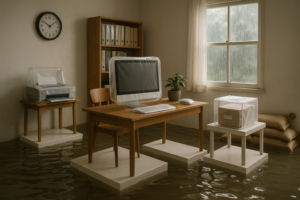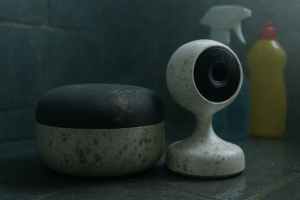Mold Remediation in Round Rock, Tx
Learn more about mold, getting rid of mold, and symptoms of mold sickness.
There are countless questions surrounding mold and what to do about it. One thing is certain, mold remediation in Round Rock, Tx is crucial due to the region’s humid climate, which can easily foster mold growth.
Professional mold remediation companies in your area, such as those serving neighborhoods like Forest Creek, Vizcaya, Oaklands, Behrens Ranch, Mayfield Ranch, Cat Hollow, Teravista, Hidden Glen, Sendero Springs, University Heights, Stone Canyon, Siena, Sonoma, and Paloma Lake offer comprehensive services to address mold issues. These services typically include inspection, identification of the mold type, containment of the affected area, removal of mold-infested materials, thorough cleaning, and preventive measures to inhibit future mold growth.
Read on to learn more about mold removal!
Featured Questions
Frequently Ask Questions
Common questions about mold are littered everywhere. The answers? Those are much harder to find.
25 or more continuous square feet of mold growth requires a licensed professional for remediation in the state of Texas.
In most cases, mold remediation is best handled by professionals, especially when the mold growth is extensive or if there are health concerns. Professional mold remediation companies have the expertise, equipment, and experience to assess the extent of the mold problem properly. They're sure to contain the affected area to prevent further spread, safely remove the mold-contaminated materials, and restore the affected space to a healthy condition.
Attempting to remove mold on your own, especially if it's a large or hidden infestation, can be risky. Disturbing mold colonies can release spores into the air, spreading the problem to other areas of the property and potentially causing health issues, particularly for individuals with allergies, asthma, or other respiratory conditions.
Professional mold remediation also includes measures to address the underlying cause of mold growth, such as moisture control, to prevent future mold problems. This comprehensive approach helps ensure that the mold issue is resolved and doesn't return.
Not exactly. Mold spores are found naturally everywhere, they just become a problem when there's an abundance of them.
However, it is possible to control indoor mold growth and prevent it from becoming a significant problem. Proper mold remediation, which includes identifying and addressing the underlying moisture source, thorough cleaning and removal of mold-infested materials, and implementing preventive measures, can almost eliminate indoor mold levels - but not entirely.
Effective mold remediation involves removing visible mold and also addressing any moisture issues that contribute to mold growth. This may include repairing leaks, improving ventilation, reducing humidity levels, and addressing any other sources of excess moisture. By eliminating the conditions that promote mold growth, you can create an environment where mold can't survive.
Mold can make you sick through several mechanisms, primarily related to the inhalation or direct contact with mold spores, fragments, or volatile organic compounds (VOCs) produced by mold.
Here are some ways mold can affect your health:
- Infections: Certain types of mold can produce toxins known as mycotoxins, which can cause toxic reactions when ingested by humans and animals. These illnesses are more common in individuals with compromised immune systems or prolonged exposure to high levels of mold toxins.
- Allergic Reactions: For individuals with allergies, exposure to mold spores can trigger allergic reactions similar to those caused by pollen or dust mites. This can lead to symptoms such as sneezing, runny or stuffy nose, itchy or watery eyes, and skin irritation.
- Respiratory Issues: Mold can exacerbate existing respiratory conditions such as asthma. Inhaling mold spores can irritate the airways, leading to coughing, wheezing, chest tightness, and shortness of breath. Prolonged mold exposure can contribute to the development of asthma in some cases.
- Not experiencing any or most of the above ailments?
Well, the good news is your body is effectively protecting you from the harmful effects of mold exposure.
However, if you're experiencing fatigue, headaches, difficulty concentrating, and other symptoms when exposed to mold, this may be the result of your body expending energy and resources to fight off these infections, allergens, and toxins.
It's important to note that not everyone exposed to mold will develop health problems, and the severity of symptoms can vary widely depending on factors such as the type of mold and your overall health status. Consult with a healthcare professional if you suspect mold exposure is affecting your health.
Schedule Free Assessment
Reach out to our team 24/7 and we'll be in touch shortly
Insight
Latest Articles

Water leaks often catch people off guard. That slow drip under the sink or behind the washing machine can turn into a flooded room in

When you think of “empaths,” who comes to mind? As someone who spent two decades as a pediatric nurse, my first thoughts have always been

Remote work has changed the way people approach jobs and life. More people than ever now rely on productive home office setups for success. Yet,

Smart homes bring comfort, safety, and control to our daily lives. From voice assistants to Wi-Fi cameras and smart speakers, these devices keep things efficient

